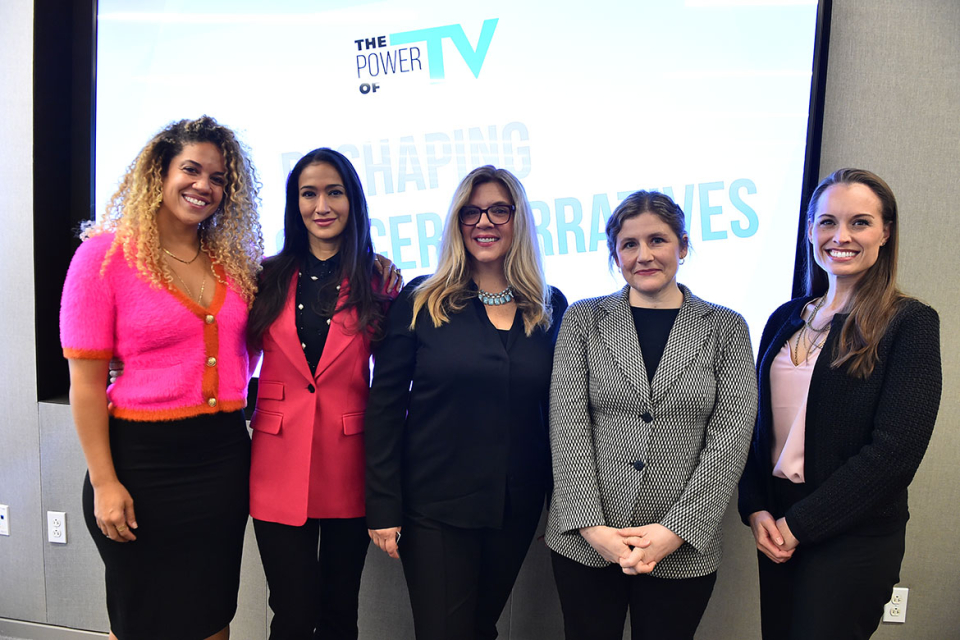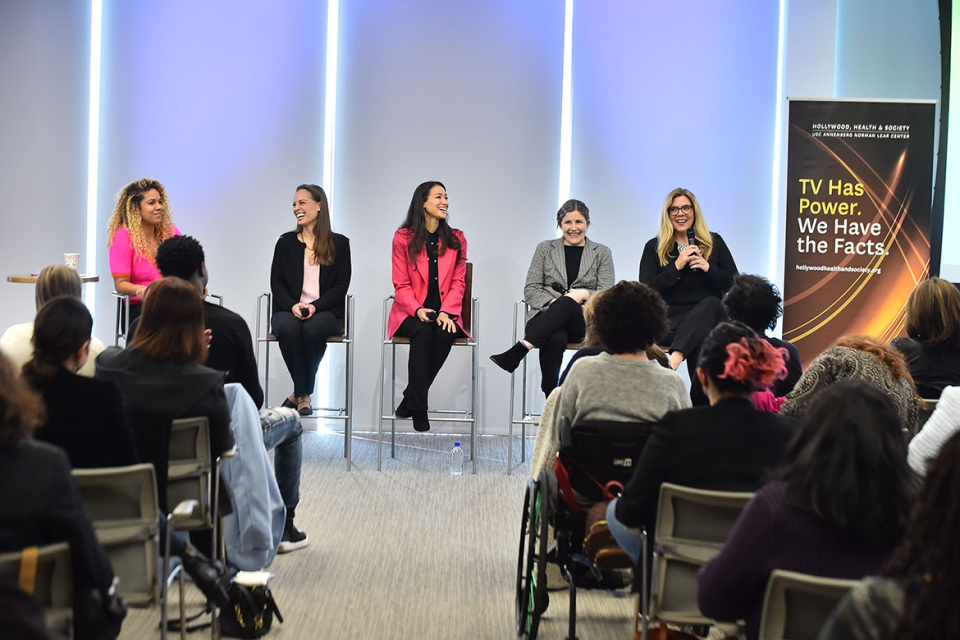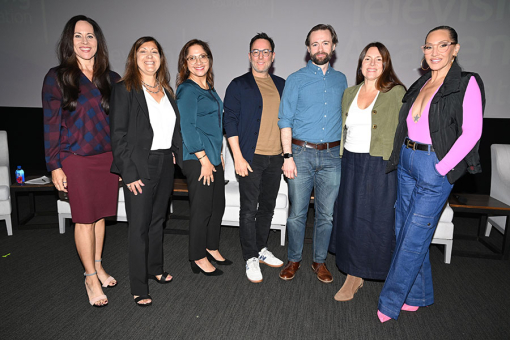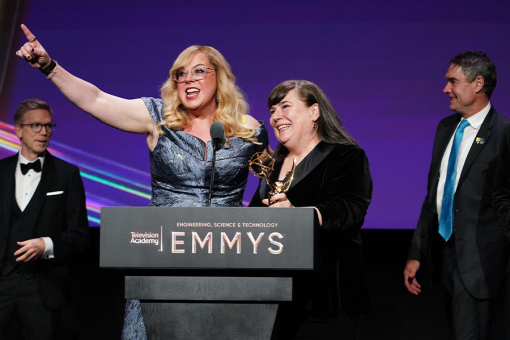Most television storylines about breast cancer depict older white women nearing the end of their lives, but in real life, nearly one in ten new cases in the U.S. is found in women under the age of forty-five. The need to address this discrepancy and educate younger women on risk factors, treatment options and support was the focus of the Television Academy Foundation event "The Power of TV: Reshaping Breast Cancer Narratives," one of a series of public programs exploring television's potential to tell authentic stories and effect social change.
Panelists for the January 25 event included Kristi Korzec, coexecutive producer-writer, Superman & Lois (The CW); Alena Smith, creator of Dickinson (Apple TV+); Carlie Thompson, MD, board-certified and fellowship-trained breast surgical oncologist; and Krista Vernoff, showrunner-executive producer, Grey's Anatomy and Station 19 (ABC). Carri Twigg, cofounder and head of development for Culture House production company, was moderator.
"The most helpful thing that I think media can do is educating and providing awareness about breast cancer risk," Thompson said. That risk includes family history and carrying the BRCA1/BRCA2 gene mutation or other genetic dispositions; Smith entreated those writers in attendance to use her own personal journey of trying to get pregnant while also confronting the need for prophylactic surgery to remove her sexual organs because of BRCA1.
When Korzec was a supervising producer-writer on CBS's God Friended Me, there was a season-long arc about a young woman of color who had breast cancer, and now Superman & Lois has a storyline about breast cancer. "We've looked at cancer as being sort of a supervillain that the average person has to fight," she said.
Such an approach underscores that a storyline can educate viewers with health information without losing entertainment value. "I start with the question, 'What message are we sending with a story?'" said Vernoff, who will be stepping down from both her shows at the end of the season. "I think there's a way — the longevity of Grey's Anatomy would argue — to have profound entertainment and great storytelling that also considers [the message]."
In an emotional Q&A, audience members with personal experiences suggested story points to the receptive panel, among them the need to be one's own advocate in the healthcare system; quick conversational references among friends about getting mammograms; and the under-representation of people of color in clinical drug trials.
The event was developed in partnership with Hollywood, Health & Society, a program of the University of Southern California Annenberg Norman Lear Center, and held at the Academy's Saban Media Center in the NoHo Arts District.
To view a replay of the discussion, click here.












